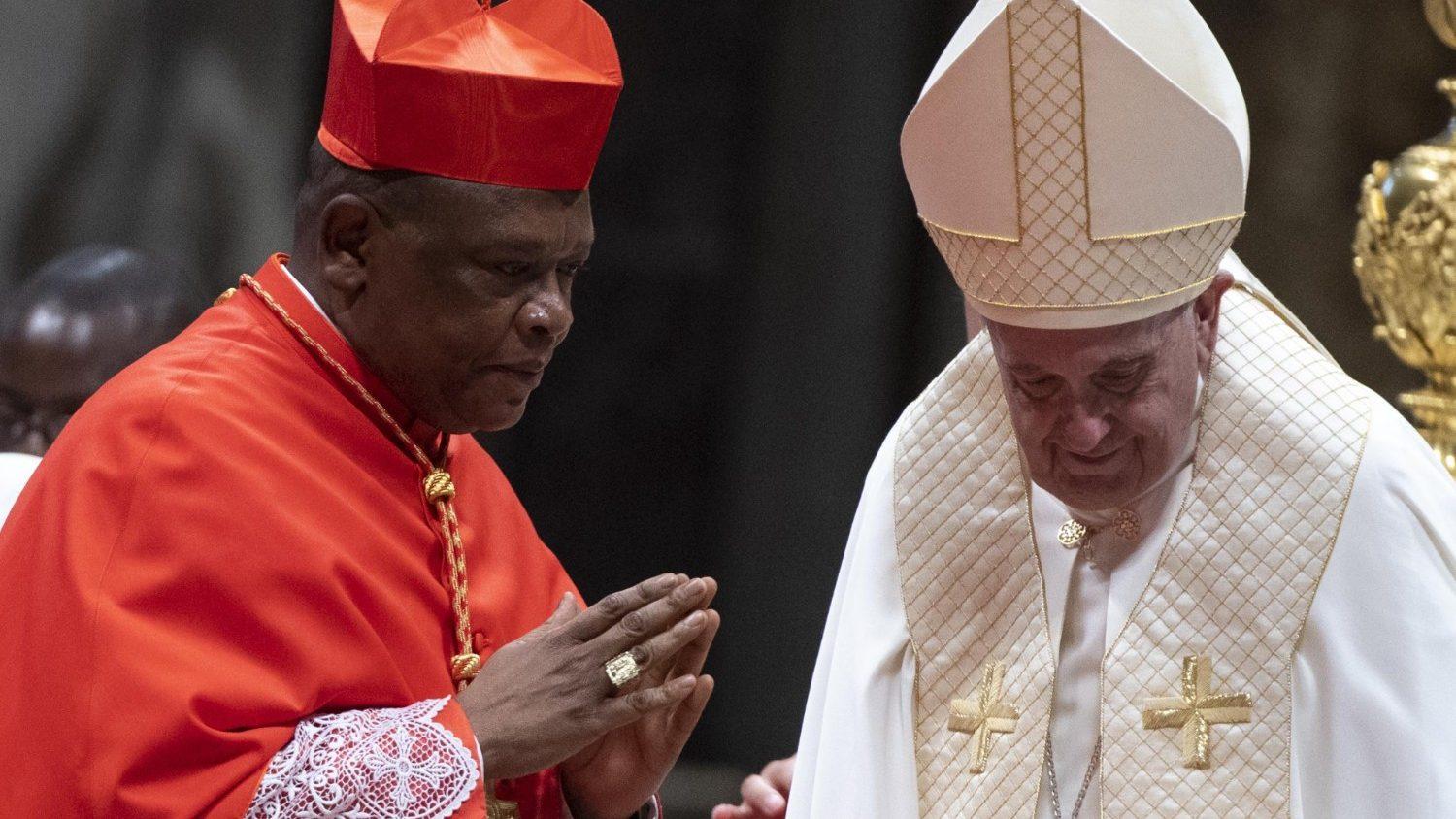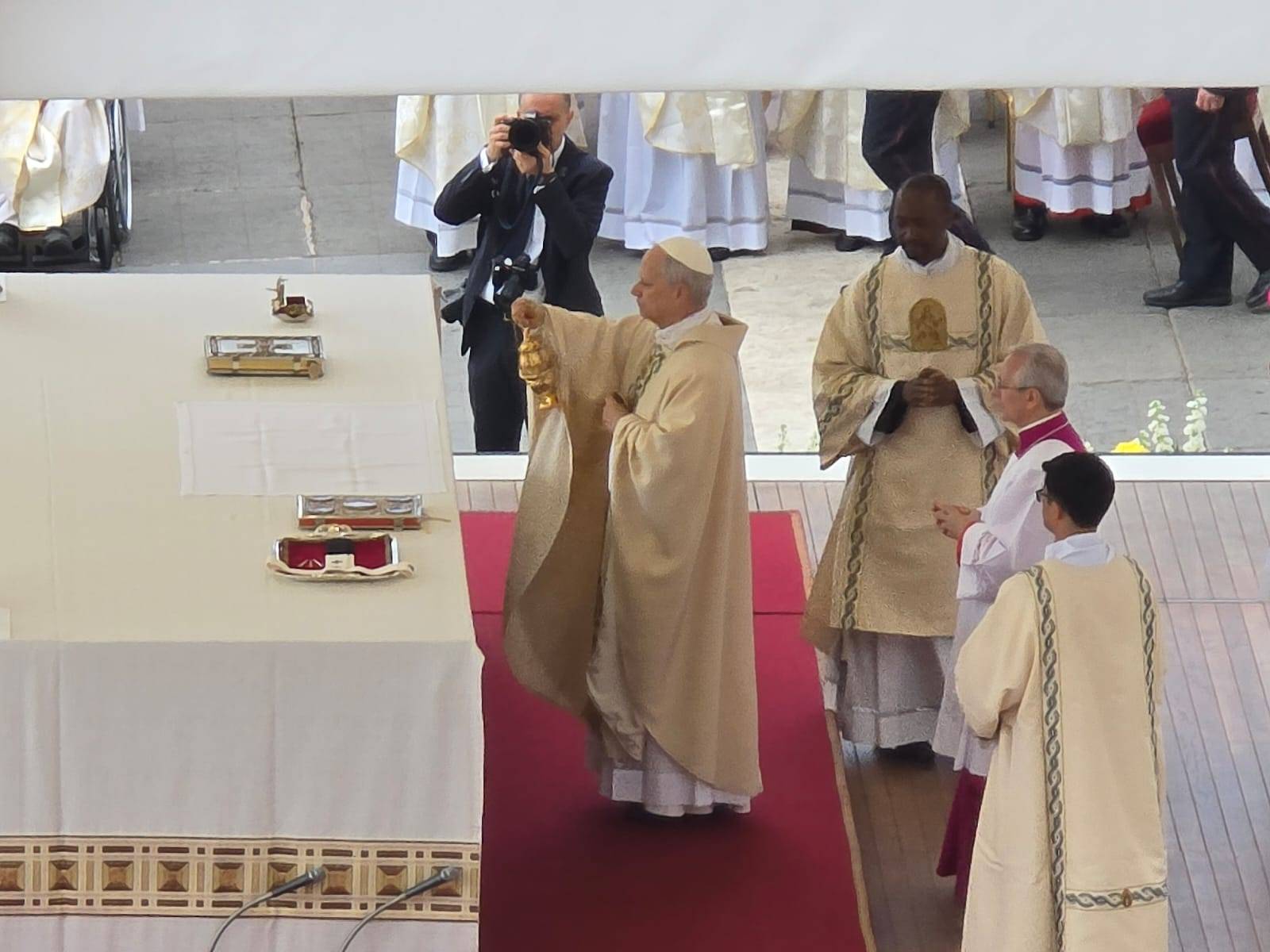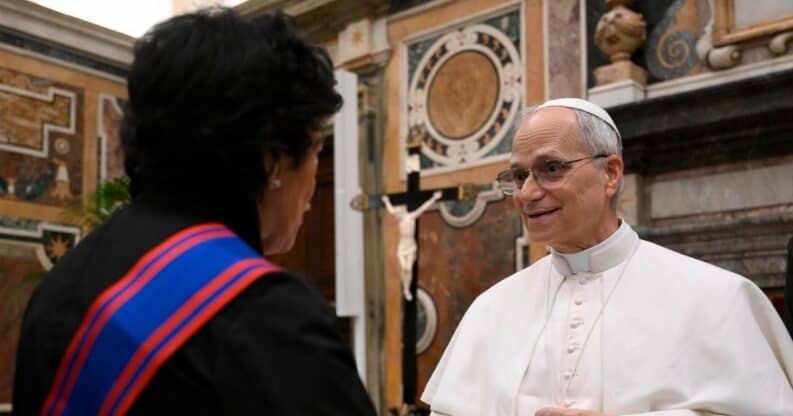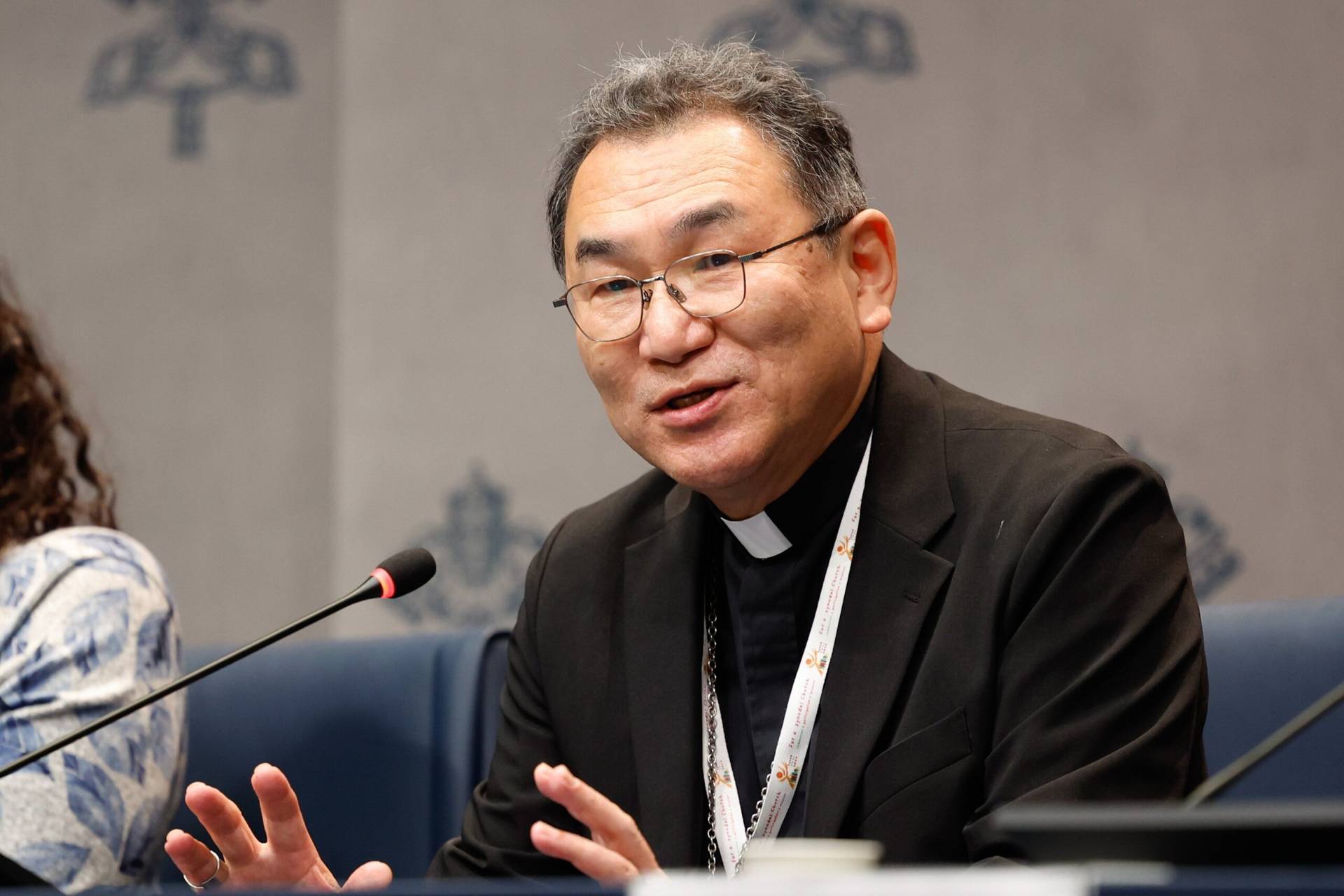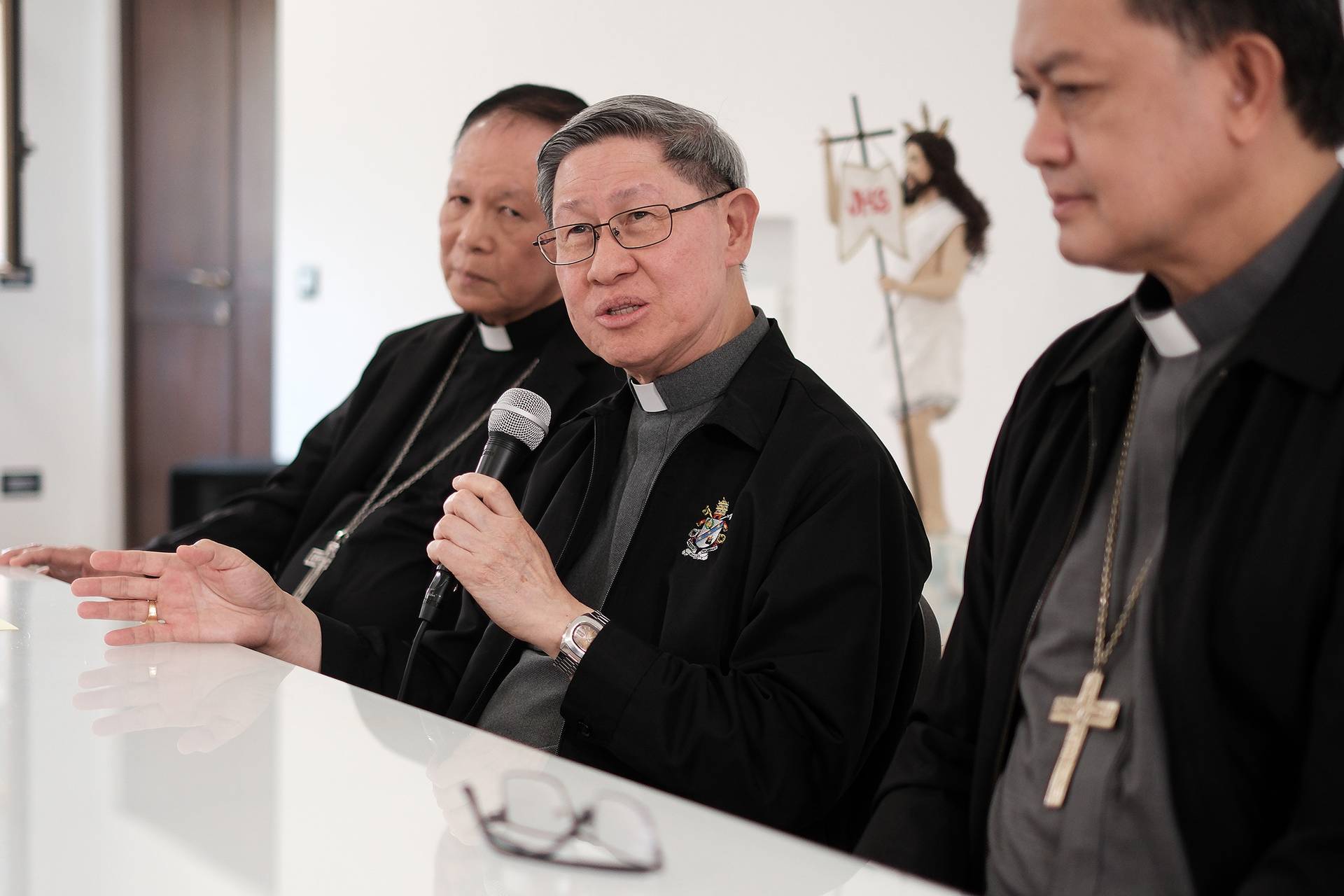Each day between now and the conclave to elect a successor to Pope Francis, on a date yet to be set, John Allen is offering a profile of a different papabile, the Italian term for a man who could be pope. There’s no scientific way to identity these contenders; it’s mostly a matter of weighing reputations, positions held and influence wielded over the years. There’s also certainly no guarantee one of these candidates will emerge wearing white; as an old bit of Roman wisdom has it, “He who enters a conclave as a pope exits as a cardinal.” These are, however, the leading names drawing buzz in Rome right now, at least ensuring they will get a look. Knowing who these men are also suggests issues and qualities other cardinals see as desirable heading into the election.
ROME – When Pope Francis gave the green light for the Dicastery for the Doctrine of the Faith to issue its controversial 2024 declaration Fiducia Supplicans, authorizing the blessing of persons in same-sex unions, presumably the point was to fill a pastoral void and to reach out to a constituency often alienated from the Catholic Church.
Under the heading of unintended consequences, however, one other clear consequence of the declaration was to launch a new papal candidate upon the world: 65-year-old Cardinal Fridolin Ambongo Besungu of Kinshasa in the Democratic Republic of Congo, who also serves as the elected leader of the African bishops as president of the Symposium of Episcopal Conferences of Africa and Madagascar (SECAM).
A headline at the time in the Italian newspaper Il Messaggero, atop a piece by veteran Vatican correspondent Franca Giansoldati, said it all: “The profile of Cardinal Ambongo advances among the future papabili: He led the African blockade of the blessing of gay couples.”
The reference was to the fact that Ambongo was the prime mover in a statement from SECAM which declared Fiducia Supplicans a dead letter on the continent. African prelates, it said, “do not consider it appropriate for Africa to bless homosexual unions or same-sex couples because, in our context, this would cause confusion and would be in direct contradiction to the cultural ethos of African communities.”
It marked the first time the bishops of an entire continent have said that a Vatican edict will not be applied on their territory. Given how difficult it generally is to get an unwieldy body of bishops to agree on anything, the compact and rapid fashion in which SECAM responded was a testament to Ambongo’s leadership.
Moreover, the SECAM statement was also striking for the manner in which it was worked out in concert with the pope and his top advisors.
Ambongo told the story in a conversation with a French Catholic blog. After soliciting the responses of the African bishops, he flew to Rome to share them with the pope. Francis asked him to work with Argentine Cardinal Victor Manuel Fernández of the Dicastery for the Doctrine of the Faith, which Ambongo did, consulting the pontiff along the way, so that when the SECAM statement appeared, it carried a de facto seal of papal approval.
In other words, Ambongo found a way for the Africans to have their cassava and eat it too – opposing the pope, at least indirectly, but without seeming disloyal. That’s one of the most difficult needles to thread in Catholic life, and the artful fashion in which Ambongo pulled it off turned heads.
Born in Boto in Congo in 1960, Ambongo felt called to the priesthood and joined the Capuchin Franciscans, taking his final vows as a member of the order in 1987. He was later sent for studies in moral theology at the prestigious Alphonsian Academy in Rome, run by the Redemptorists, where he picked up Italian – which is, among other things, almost a sine qua non for a potential pope.
In the years following, he worked in a parish, taught in seminaries and held various leadership positions within the Capuchins until he was made a bishop in 2004 at the young age of 44.
In 2016, Ambongo became the Archbishop of Mbandaka-Bikoro and, like his mentor, the late Cardinal Laurent Monsengwo Pasinya, soon found himself thrust into the maelstrom of Congolese politics. When then-President Joseph Kabila delayed elections in 2016 to remain in power, Ambongo became a tribune of the pro-democracy opposition and helped to negotiate the St. Sylvester Framework Agreement that paved the way for new elections in 2018.
Ambongo certainly doesn’t lack for boldness. His outspoken environmental advocacy, including criticism both of giant global oil and mining companies as well as local politicians who do their bidding, has generated death threats over the years; at one point, he called himself “a person in danger in Congo.”
He obviously enjoyed the favor of Pope Francis, having been named a member of the pontiff’s Council of Cardinals in 2020, taking the place of Monsengwo, and then being confirmed in that position in 2023. He also hosted a successful papal trip to Congo in 2023. Yet as the ferment over Fiducia illustrated, he’s also capable of breaking with the hallelujah chorus that always surrounds any pope when he believes a matter of principle is at stake.
The case for Ambongo?
He represents a unique blend of continuity and change with the Pope Francis legacy – building on his outreach to the peripheries and his keen social witness, but a more cautious and traditional approach to contentious doctrinal matters.
His résumé certainly bespeaks gravitas – a trouble-shooter and statesman in national politics, the continental leader of a body of bishops, and a papal advisor with insider’s knowledge of Vatican reform efforts.
Further, as a Capuchin, Ambongo has a reputation as a strong pastor, close to the people and sensitive to the issues and struggles which ordinary folks face in their faith lives. He seems to radiate genuine pleasure in being in the company of the faithful, certainly a quality you’d want a pope to possess.
The case against?
Ambongo isn’t terribly well known outside Africa, so the impressions of many of his fellow cardinals are probably forged more by media coverage and third-party chatter than direct personal contact. Some may wonder if his stern criticism of what he sees as declining moral standards in the West might make him a tough sell in more secularized parts of the world, potentially coming off as somewhat out of touch.
Americans may also be slightly put off by the fact that Ambongo’s English is limited, though they managed to make their peace with the same challenge under Francis.
One thing is for sure: Should Ambongo emerge from the conclave wearing white, the prospect of a “black pope” likely would electrify world opinion, handing him a massive cultural megaphone. The drama then would become how he chooses to use it.
